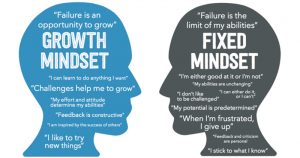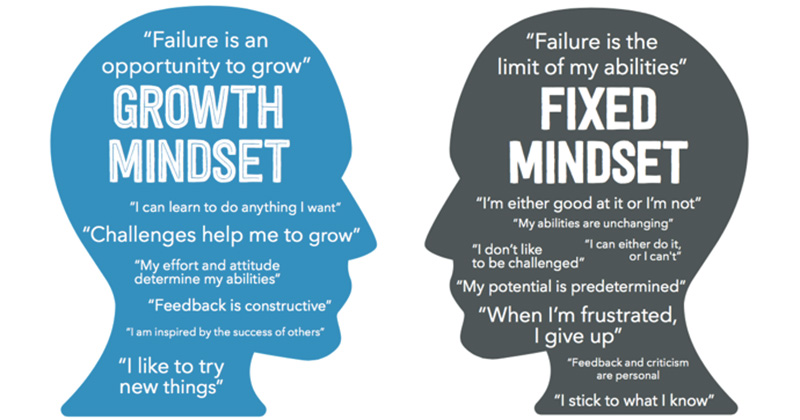Do you spend time worrying that you aren’t good enough to succeed? That you’re just not capable or that you aren’t smart enough? You’re not alone. In this article, you will learn how our mindset matters in everything we do.
Your Mindset Matters

Do you have a growth or a fixed mindset?
Susan David in her HBR article “How To Manage Your Inner Critic“ gave some really good tips. She states, quieting your inner critic takes a series of specific steps:
First, it is important to recognize that the most commonly used strategy — trying to ignore or suppress your inner critic — simply doesn’t work. Rather than suppress your emotions, acknowledge that they are real, whether justifiable or not. The trick to dealing with your inner critic is to develop a balanced relationship with it. More or less learning how not to ignore it and the emotions it raises, yet also not allowing yourself to be bullied by it.
Second, examine your inner critic. Ask it: “Where do you come from?” This might feel awkward at first, yet speaking internally with your critic is a valid technique that encourages you to think objectively. We’re influenced by many factors, including competition with our peers, the media, our relationships with our significant others, and more. Once you understand the places your inner critic comes from, you’ll be able to recognize when it’s telling you the truth and when to disregard it.
Third, understand that your inner critic can actually help you. Your inner critic has evolved to help you set and meet high expectations. If you’re open to it – which is not the same as believing everything it tells you – then you can learn from it. Like a good coach, your inner critic reminds you that knowledge and capability are important. Ask it: “How will you help me achieve success in the task ahead?”
Forth, act in spite of your inner critic. You can learn from your inner critic. Yet be careful to not give it too much power. Find and maintain the right distance — keep it close enough to be useful, but not so close that it gets in your way. As soon as you hear your inner critic complaining, acknowledge the information — but always ask: is my inner critic helping me or hurting me? If what it’s telling you saps your confidence, then ask it to step aside and continue on your way
In the end, it’s helpful to remember that as loud as your inner critic can be, it’s just a part of you and not the whole. Don’t let it stop you from continuing to take action, learn and grow.


